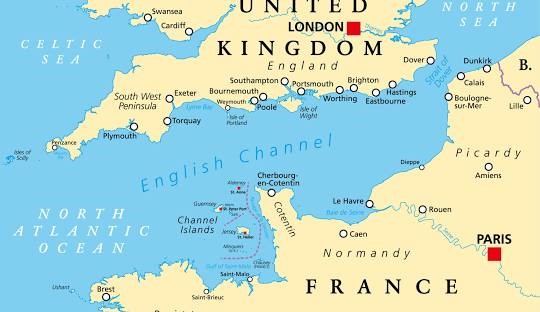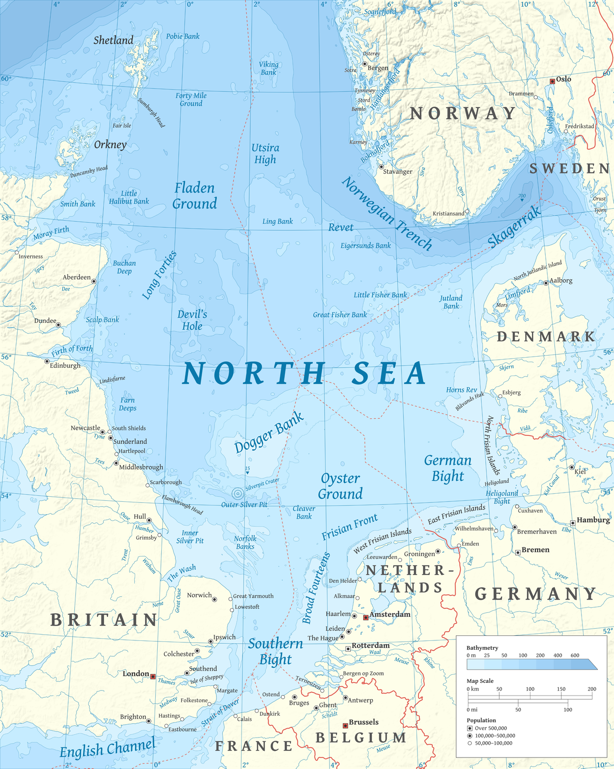Description

Disclaimer: Copyright infringement not intended.
Context
- The U.K. is not sufficiently coordinating with France in efforts to reduce the number of migrants crossing the English Channel in small boats, according to a French report that points to the “uncertain effectiveness” of illegal migration policies.
About English Channel
- The English Channel, also known as the Channel, is an arm of the Atlantic Ocean that separates Southern England from northern France.
- It links to the southern part of the North Sea by the Strait of Dover at its northeastern end. It is the busiest shipping area in the world.
- It is about 560 kilometres (300 nautical miles; 350 statute miles) long and varies in width from 240 km (130 nmi; 150 mi) at its widest to 34 km (18 nmi; 21 mi) at its narrowest in the Strait of Dover.
- It is the smallest of the shallow seas around the continental shelf of Europe, covering an area of some 75,000 square kilometres (22,000 square nautical miles; 29,000 square miles).
- The Channel was a key factor in Britain becoming a naval superpower and has been utilised by Britain as a natural defence mechanism to halt attempted invasions, such as in the Napoleonic Wars and in the Second World War.
- The population around the English Channel is predominantly located on the English coast and the major languages spoken in this region are English and French.
Key Facts about North Sea

- The North Sea lies between Great Britain, Denmark, Norway, Germany, the Netherlands, Belgium and France.
- An epeiric sea on the European continental shelf, it connects to the Atlantic Ocean through the English Channel in the south and the Norwegian Sea in the north.
- It is more than 970 kilometres long.
- It hosts key north European shipping lanes and is a major fishery.
- The coast is a popular destination for recreation and tourism in bordering countries, and a rich source of energy resources, including wind and wave power.
- The North Sea has featured prominently in geopolitical and military affairs, particularly in Northern Europe, from the Middle Ages to the modern era.
|
PRACTICE QUESTION
Discuss the geopolitical significance of the English Channel in European history and its impact on trade and military strategies.
|

















